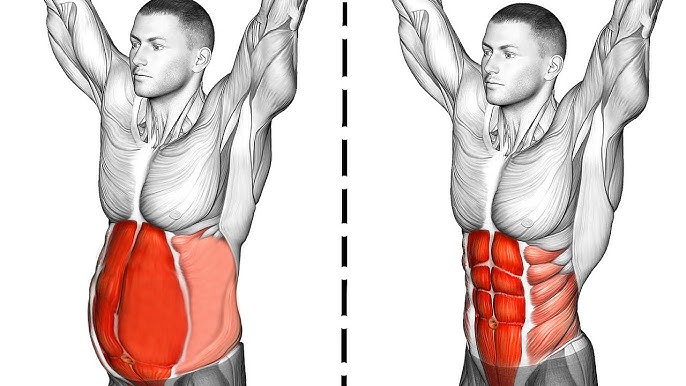Dietary Dangers Revealed: 10 Foods to Avoid for High Blood Pressure
:max_bytes(150000):strip_icc()/Health-GettyImages-2212083386-afb4829954ff4883971aedd85fc1d2dc.jpg)
High blood pressure, also known as hypertension, is a significant global health concern, affecting approximately 1.36 billion people in 2019, more than double the number diagnosed in 1990. It stands as the leading preventable risk factor for cardiovascular disease and is closely linked to other serious conditions such as stroke and chronic kidney disease. Managing high blood pressure primarily involves lifestyle adjustments, including regular physical activity, maintaining a healthy weight, and crucially, being mindful of dietary intake. Limiting or avoiding certain foods high in salt, added sugar, and unhealthy fats is a cornerstone of this management strategy.
Excessive sodium intake is a primary contributor to high blood pressure. Too much sodium causes the body to retain water, which increases blood volume and puts extra pressure on artery walls, elevating the risk of heart disease and stroke. The 2020-2025 Dietary Guidelines for Americans recommend that healthy adults limit daily sodium intake to 2,300 milligrams (mg) or less. Foods notoriously high in sodium include canned soups, many condiments, processed meats, packaged snacks, and pizza.
Saturated and trans fats also play a detrimental role in cardiovascular health. Saturated fat contributes to plaque buildup (atherosclerosis) in the arteries, which narrows them and restricts blood flow, thereby increasing blood pressure. The Dietary Guidelines for Americans advise limiting saturated fat intake to less than 10% of total daily calories. Common sources of saturated fat are cream-based sauces, fatty cuts of meat, fried foods, full-fat dairy products, and processed meats. High-cholesterol foods, which often contain saturated fats, further exacerbate this problem by contributing to arterial narrowing and stiffening.
Added sugars are another dietary concern for blood pressure management. There is a clear link between long-term added sugar intake and increased abdominal fat, a known risk factor for hypertension. Consuming foods packed with added sugars can also lead to blood sugar spikes, stressing cardiovascular health and triggering inflammation. The Dietary Guidelines recommend limiting added sugars to less than 10% of total daily calories. Foods to watch out for include breakfast pastries, candy, canned fruit packed in syrup, sweetened yogurts, and syrups. Sugary beverages, such as energy drinks, regular soda, sports drinks, sweetened coffee drinks, and sweet iced tea, compound these issues by contributing to weight gain and insulin resistance, further increasing the risk of high blood pressure.
Alcohol consumption presents a complex effect on blood pressure. While blood vessels may temporarily relax after drinking, potentially reducing blood pressure, consuming large amounts or drinking for extended periods can cause blood pressure to rise, sometimes even higher than before. Additionally, alcohol can contribute to weight gain, dehydration, and may interact negatively with certain medications, including those for blood pressure. Alcoholic drinks encompass beer, cocktails, hard seltzers, liquors, liqueurs, and wine.
Ultra-processed foods, including many processed frozen meals, are often high in sodium, unhealthy fats, and added sugars, and have been linked to an increased risk of hypertension. Examples include frozen french fries, lasagna, pizza, pot pies, and TV dinners. Similarly, high-fat fast foods, rich in saturated and trans fats, contribute to weight gain, high cholesterol, and inflammation, often alongside high sodium levels that disrupt fluid balance and blood pressure. These include french fries, fried chicken, fried fish, hamburgers, and fast-food pizza. Condiments like barbecue sauce, ketchup, mustard, soy sauce, teriyaki sauce, vinaigrettes, and creamy dressings, while used in small amounts, can quickly add significant sodium and sometimes added sugar, making portion control vital. Processed and packaged snacks, such as candy bars, cheese-flavored snacks, packaged cookies, potato chips, pretzels, and snack mixes, are typically high in sodium (often used as a preservative), added sugars, and unhealthy fats, while lacking essential nutrients.
While certain foods contribute to high blood pressure, others can help lower it and reduce hypertension risk. Prioritizing fresh fruits, vegetables, nuts, whole grains, and oily fish is highly beneficial. Specifically, foods rich in vitamins and minerals like leafy greens and fresh fruit, fiber-rich whole grains such as oatmeal and quinoa (which also improve cholesterol levels), and nutrient-dense foods like fatty fish, nuts, and seeds (containing healthy fats instead of saturated fats) should be emphasized in the diet.
Beyond diet, other lifestyle habits like regular physical activity, maintaining a healthy weight, stress management, and ensuring quality sleep are critical for blood pressure control. If blood pressure remains elevated despite lifestyle changes, or if an individual has a complex medical history or specific dietary needs, professional support is advisable. A registered dietitian (RD) can offer personalized meal planning. Furthermore, individuals experiencing symptoms from prescribed blood pressure medications should promptly seek guidance from their healthcare provider regarding their concerns.
You may also like...
President Alassane Ouattara set to begin his fourth consecutive tenure

President Ouattara on Monday, October 28 has been announced as the winner of the 2025 Ivorian Presidential election mark...
Platonic or Problematic: The Truth About Male–Female Friendships

Can a guy and a girl really just be friends, or is society too obsessed with turning every bond into a love story?
Egypt Reaffirms Its Diplomatic Clout in a Fragmented Region

Egypt is reclaiming its position in the middle of Arab and African diplomacy, one meeting at a time.
Abs Vs Belly: What do women Prefer

Some women love abs for their strength and discipline, but many admit a soft belly feels warmer, realer, and more inviti...
Forgotten at 80: Why the World Must Remember Aung San Suu Kyi, and Myanmar’s Broken Promise

Once the great hope for Myanmar, but and now in jail. Aung San Suu Kyi marked her 80th birthday in Prison.
Plane Carrying 10 Foreign Tourists Crashes on its way to the Maasai Mara Reserve

A light plane crash in Kenya's coastal regions claimed 11 lives — 8 Hungarians, 2 Germans and a Kenyan Pilot in a fatal ...
Africa’s Image Economy: The Business of Looking Good

In Africa’s digital age, fashion has evolved from self-expression into a kind of survival. What began as cultural pride ...
Storm Alert: Hurricane Melissa Nears Usain Bolt's Home; Lyles & Coleman Rally Support For Jamaica
)
Hurricane Melissa, dubbed the "storm of the century," has made catastrophic landfall in Jamaica, bringing 185 mph winds,...
:max_bytes(150000):strip_icc()/Health-GettyImages-2196211002-bf22f5c8397c438f9aa3d036dfed0f48.jpg)



:max_bytes(150000):strip_icc()/Health-GettyImages-1239099323-30991676ea1b48f8a3555d8a9b7b2bcf.jpg)